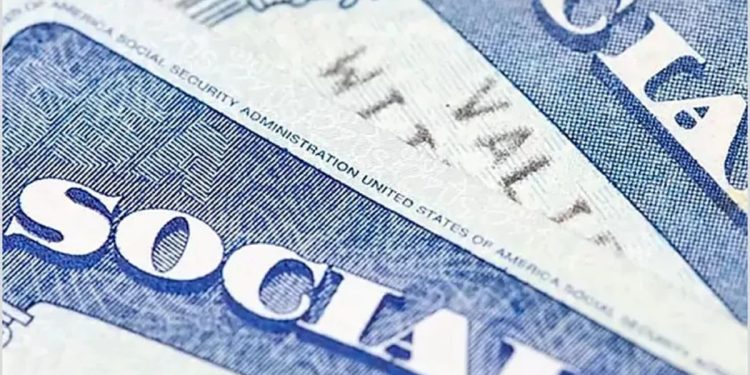Millions of Americans depend on Social Security payments for their daily needs, such as rent, groceries, and medical expenses. The Social Security Administration (SSA) has issued a warning ahead of May 2025: recipients who fail to comply with certain rules may face delays or even a complete suspension of their monthly benefits. As the SSA reviews compliance with program regulations, understanding the common reasons for suspension and how to prevent or resolve issues is critical for maintaining financial stability.
Why Social Security Benefits Could Be Suspended
The SSA enforces strict rules to ensure benefits are only provided to those who remain eligible. Several life events or oversights can trigger a suspension of benefits. The most common reasons include:
1. Failure to Update Immigration or Personal Information
Beneficiaries must notify the SSA immediately of any changes to their immigration status, personal details, or citizenship. Failure to report such changes can result in a hold on benefits.
2. Returning to Work Without Reporting It
Disability recipients are required to inform the SSA if they return to work or begin earning income that could impact their eligibility. If earnings exceed certain limits, benefits may be reduced or stopped.
3. Unreported Income Over Allowed Limits
This issue is especially relevant for Supplemental Security Income (SSI) recipients. If a beneficiary’s income exceeds the allowed threshold and it’s not reported to the SSA, payments may be suspended.
4. Extended Travel Abroad
Leaving the United States for more than 30 consecutive days, particularly for SSI recipients, can lead to disqualification. Beneficiaries are required to notify the SSA if they plan to travel for extended periods.
5. Ignoring SSA Requests for Documents or Updates
If the SSA requests additional information or documents and a beneficiary fails to respond within the specified deadline, payments could be automatically halted.
6. Life Changes (Marriage, Divorce, or Loss of a Dependent)
Any significant life changes, such as marriage, divorce, or the loss of a dependent, can alter a beneficiary’s eligibility or payment amount. Failure to report such changes could result in payment suspension.
7. Incarceration or Residence in a Public Institution
Being incarcerated or residing in a public institution (such as a hospital or nursing home) typically results in an automatic suspension of benefits.
How to Fix or Prevent a Suspension of Benefits
If your benefits are suspended, it’s essential to act quickly to resolve the issue and prevent any long-term financial impact. Here are the steps you can take to avoid or address a suspension:
1. Contact the SSA Immediately
If your benefits are suspended, the first step is to contact your local SSA office to determine the reason for the suspension. Many suspensions are due to simple errors, such as missing paperwork or an unreported life change. Clarifying the issue with SSA may allow you to resolve it quickly.
2. Update Missing Information or Submit Required Documents
For example, if your earnings report was not submitted, or if your medical records for a disability review are missing, providing the required documentation can often resolve the issue and get your benefits reinstated.
3. File an Appeal if Necessary
If you believe your benefits were unfairly cut off, you have the right to file an appeal. The appeal process allows a Social Security judge to reassess your case, and in some instances, payments may be reinstated with retroactive compensation.
4. Stay Proactive and Respond Promptly to SSA Notices
To avoid disruptions in the future, always respond to SSA notices promptly and keep your personal information, income, and work status up to date. Being proactive and following through with required updates is key to ensuring you remain eligible for benefits.
Tips to Keep Your Social Security Benefits on Track
The SSA has taken steps to improve the efficiency of its services, but it’s still up to beneficiaries to stay vigilant. To prevent benefit disruptions in the months ahead, consider the following tips:
- Maintain Detailed Records: Save all correspondence from the SSA and keep thorough records of any changes in your personal or financial situation. This will help if you need to provide proof of eligibility or resolve an issue.
- Update Your Information Regularly: Report any changes to your address, marital status, income, or work status as soon as possible to prevent a delay or suspension.
- Respond to Deadlines: Missing a deadline can result in a suspension of benefits. Always respond promptly to SSA requests for documentation or updates.
- Contact Your Representative if Problems Persist: If you experience ongoing issues with your benefits, consider reaching out to your congressional representative for assistance in resolving the matter.
Conclusion
Staying compliant with SSA regulations is essential to avoid interruptions in Social Security payments. The SSA’s rules are in place to ensure that benefits are distributed fairly, but they can lead to suspended payments if not followed. By staying proactive, updating your information regularly, and responding promptly to SSA notices, you can help ensure that your benefits continue without disruption.











